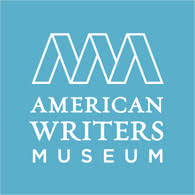Chicago is beset by a host of
problems. It now has a global
reputation for violence that rivals its reputation of the days of Al
Capone. The city is in a fiscal mess (on
top of the near bankrupt state of the State of Illinois). Its school system is in a fiscal crisis and
it had to borrow to finish the school year.
The city continues to lose population and most worrisome, African
Americans (especially working class and professional class) are fleeing the
city. Politicians are desperately
exploring new forms of taxation. One entrepreneur intimated to me a couple of
weeks ago, “You’d have to be crazy to start a business in Chicago.” It is not an altogether pretty picture.
Yet, amidst some of the gloom,
Chicago has asserted itself as a mecca for literature. In addition to two world class universities
(and some other very good ones), Chicago is now home to a trifecta of
literature--- The Poetry Foundation, the Newberry Library and the newly opened
American Writers Museum.
I waited with anticipation all
winter for the museum to open its doors and toured the museum on opening day in
May at its North Michigan Avenue location.
It is the only museum of its kind in the country, with a wonderful walk
through historical galley of banners of American authors—from Thoreau and
Hawthorne to Cather and E.B. White to Frederick Douglas and James Baldwin. It has
several interactive stations with video of scholars speaking on the works of
certain authors. My personal favorite
exhibits were the “American Voices” galley and the “Surprise Bookshelf” that
displays samples of great American writing.
Chicago is the perfect location
for a national museum as it has its own strong literary history—Gwendolyn
Brooks, Studs Terkel, Nelson Algren, Theodore Dreiser, James T. Farrell, Ernest
Hemmingway and Saul Bellow among others, are rooted in Chicago and provide the
backbone of a Chicago literary tradition.
The American Writers Museum adds
a third leg to the city’s literary stool.
The Newberry Library also has transformed itself from a sleepy, dusty
old research library to a vibrant intellectual center with a wonderful array of
programs and celebrations. I attended
one a couple of years ago that marked the 100th anniversary of Carl
Sandburg’s poem Chicago, which, in addition to a dramatic reading of the play
had several speakers, including one that talked about Sandburg’s influence on
Bob Dylan, who last year won the Nobel Prize in literature. And next year, The Newberry Library is
undergoing a major renovation that will certainly enhance its standing as an
intellectual center. The American
Writer’s Museum together with the Poetry Foundation, and the rejuvenated Newberry Library makes
Chicago a true literary center. It will
be marvelous if the leadership of each of these institutions can find ways to jointly
work on some events and programs to magnify their presence in the city’s
cultural life.
Coming on the heels of the grand
opening of the American Writers Museum is one of the finest summer literary
festivals in the country. The Printers
Row Lit Fest, held in early June, is an extravaganza of booksellers, authors,
and writer’s that converge in the South Loop for two days. This year, I had the opportunity to listen
to, and chat with, Mary Dearborn, author of the new biography of Ernest
Hemmingway and Laura Dassow Walls, author of a new biography of Henry David
Thoreau, due out on Thoreau’s 200th birthday in July. If you
have never been to the Printer’s Row Lit Fest, you are missing a wonderful day
(if you are a book lover).
Yes, Chicago has its struggles
and challenges. It is easy to get a bit
morose about its prospects, but institutions like the American Writers Museum, remind
us that Chicago still has a rich vibrant intellectual and literary foundation, and
I applaud the founders for making this museum a reality.


No comments:
Post a Comment